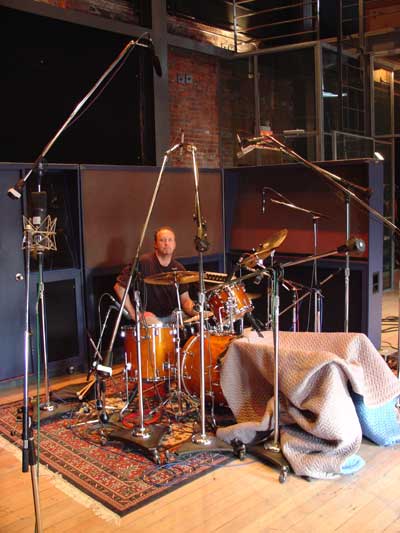Studio Drummer – No Fakes
DON’T BE PHONY EITHER*
People can spot a phony from a mile away. Don’t be gushing and overly complimentary for example. Yet don’t be a doormat either. There do arise moments, and for very good reason, when you have to be assertive.
Here’s a good example of that from my experience;
I was working on a very good session for ‘the greatest outdoor show on earth’, the Calgary Stampede when I noticed there was a playback issue that was critical. The session up to this point had been upbeat and very positive with great results.
The issue was that the playback of the tracks that we were recording was slightly delayed against the click track. What that did was make everything that we were playing on the floor sound slightly out of time with the pre-existing recorded tracks that we were playing to.
In a very assertive way I had to enter the control room and insist that there was a software issue. I could hear it. But at the time the producer and
engineer were thinking, ‘it’s 10am in the morning and you guys all have to wake up and start playing in time’! At least that was the general vibe coming from them. Plus we happened to be recording at The Armory Studios which is a multi-million dollar world renowned studio.
Since what we were recording was pretty complex and busy I had the idea to ask the engineer to do a test with me. I asked him to feed me a click track and I’d go in and play something dead simple, he’d record it and then we could compare the playback to the click track to see where the timing fell.
Sure enough they all could then hear that there certainly was a software issue and all systems were re-booted and the session was back on track again. Also and equally important, I was not made to look bad as a player due to something that was not my fault!
There are definitive times when you have to stand up for something but as in this case it was something that was essential to the overall progress that could have completely derailed the session as well as our reputations as players.






